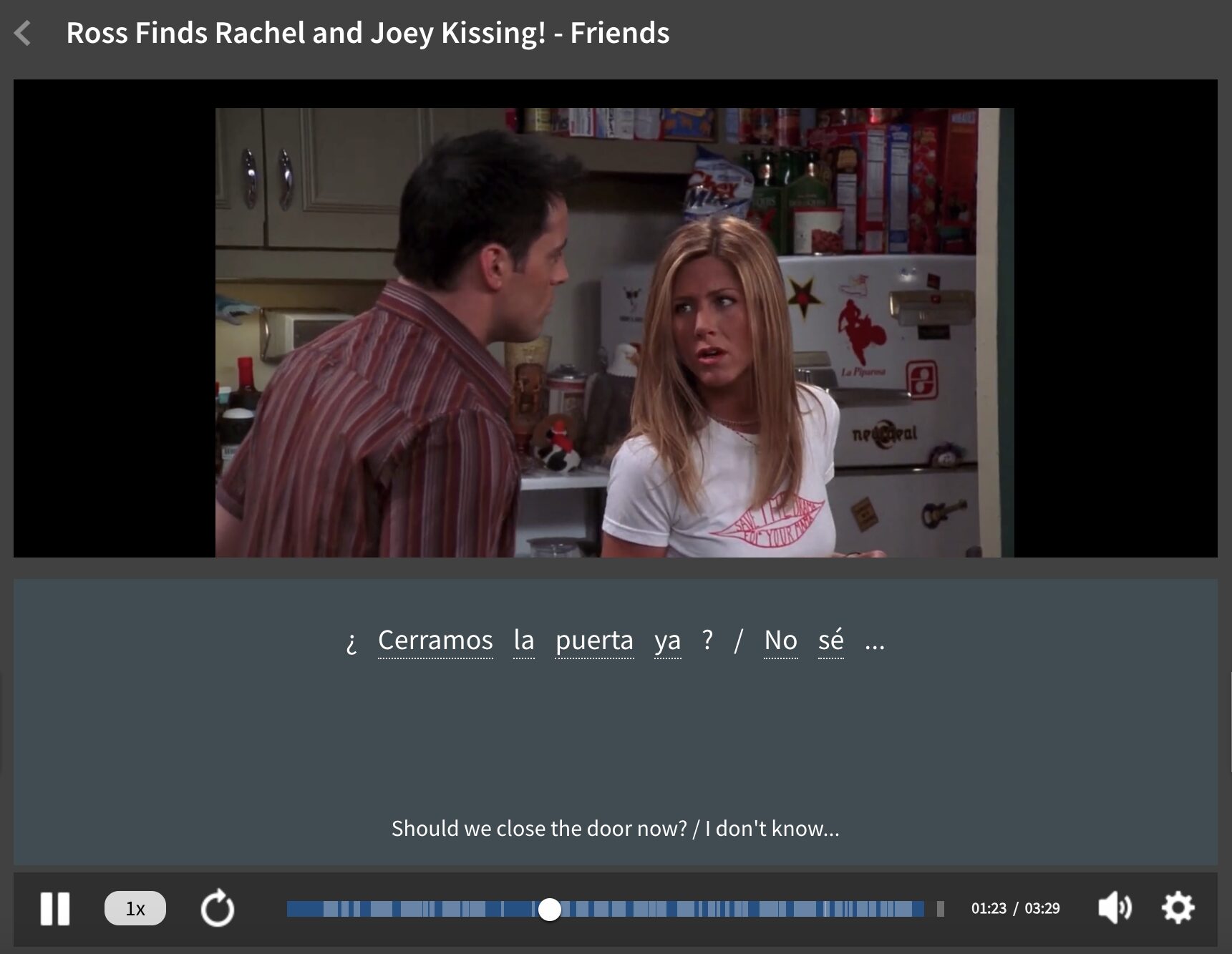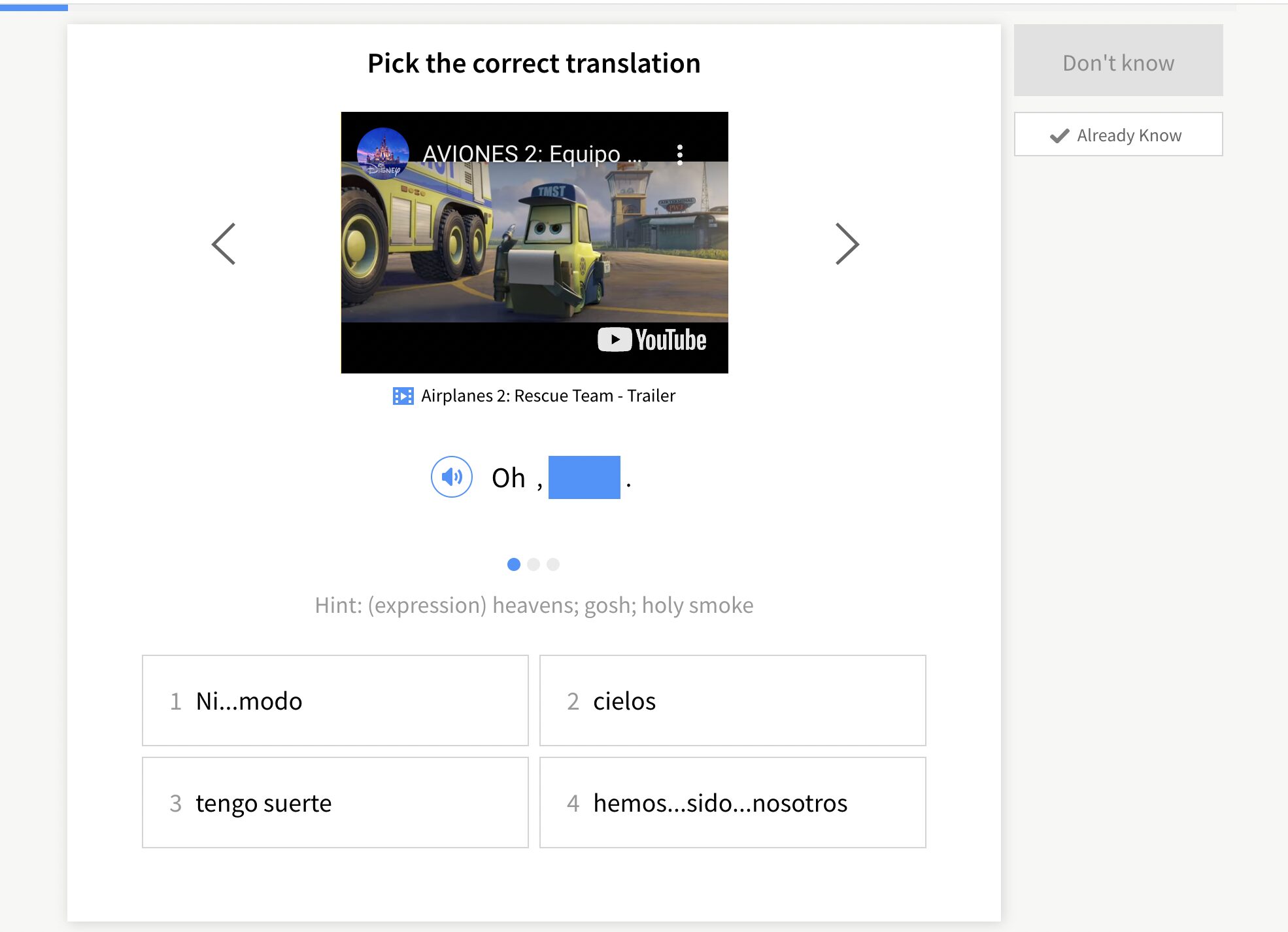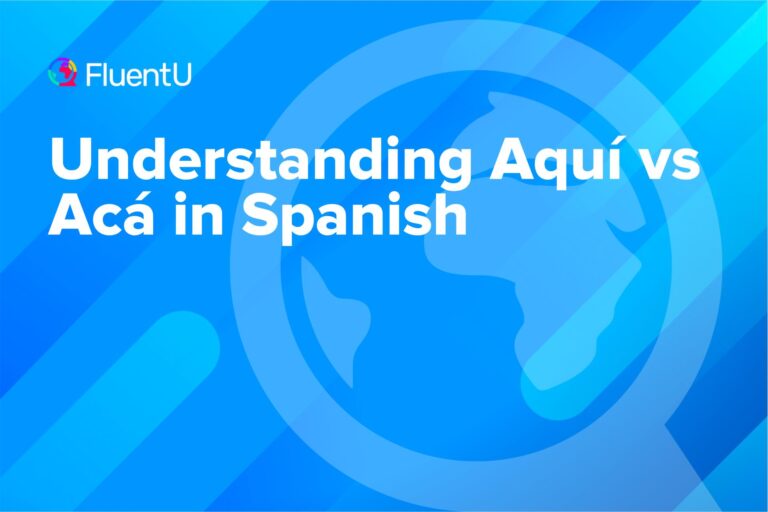Contents
- 1. Año nuevo, vida nueva — New year, new me
- 2. A cada cerdo le llega su San Martín — You reap what you sow
- 3. El que la hace, la paga — What goes around comes around
- 4. A mal tiempo, buena cara — When life gives you lemons, make lemonade
- 5. Más ven cuatro ojos que dos — Two heads are better than one
- 6. Dime con quién andas, y te diré quién eres — You are who you surround yourself with
- 7. Dios los cría, y ellos se juntan — Birds of a feather flock together
- 8. Donde hay confianza, da asco — Familiarity breeds contempt
- 9. Hoy por ti, mañana por mí — Scratch my back and I’ll scratch yours
- 10. Desgraciado en el juego, afortunado en amores — Unlucky with wealth, lucky with love
- 11. El amor es ciego — Love is blind
- 12. Obras son amores, que no buenas razones — Actions speak louder than words
- 13. Mucho ruido y pocas nueces — All bark and no bite
- 14. No es oro todo lo que reluce — Not everything that glitters is gold
- 15. A caballo regalado, no le mires el diente — Don’t look a gift horse in the mouth
- 16. Arrieros somos y en el camino nos encontraremos — What goes around, comes around
- 17. Más vale holgar, que mal trabajar — Better to do nothing than to do everything wrong
- 18. Lo que no se empieza, no se acaba — Put the pedal to the metal
- 19. No hay trabajo malo, lo malo es tener que trabajar — The job isn’t bad, working is
- 20. Te quiero como la trucha al trucho — I love you like the female trout loves the male trout
- 21. Más rápido se coge al mentiroso que al cojo — The truth comes out sooner or later
- 22. Más vale estar solo que mal acompañado — Better off alone than in bad company
- 23. Amar sin padecer, no puede ser — There’s no such thing as love without pain
- 24. Al pan, pan, y al vino, vino — Call a spade a spade
- 25. Con las manos en la masa — Caught red-handed
- 26. Después de comer, ni un sobre que leer — There’s nothing to do after eating but rest
- 27. Hacer un sinpa — Dine and dash
- Where to Find Authentic Spanish Sayings
- Why Language Learners Should Study Spanish Sayings
- And One More Thing…
27 Spanish Sayings to Express Yourself Like a Native Speaker

Sayings are a culture’s way of passing distilled wisdom to the next generation. They reflect where a culture has been and allow the inquiring language learner a deeper appreciation of the language.
Beyond the moral and cultural lessons taught, sayings are perfectly structured insights and are therefore a great way to learn new vocabulary and Spanish grammar. Below, we’ve got plenty of colorful and insightful Spanish ones for you.
Download: This blog post is available as a convenient and portable PDF that you can take anywhere. Click here to get a copy. (Download)
1. Año nuevo, vida nueva
— New year, new me
Literally: New year, new life
As in English, this Spanish saying is mostly used around the new year.
“Año nuevo, vida nueva” is a great example of how the different parts of speech in Spanish must agree with each other in gender and number.
“New” is used in both its male singular form (nuevo) and the female form (nueva).
Since año is masculine, the adjective that describes it is masculine too. Since vida is feminine, the adjective is feminine.
2. A cada cerdo le llega su San Martín — You reap what you sow
Literally: Every pig has her Saint Martin
November 11 is the feast of St. Martin of Tours—a traditional slaughter of pigs that happens in different villages in Spain.
Also known as “La Matanza” (the slaughter), this time of the year is perfect for curing meat as the first frost arrives. A family would kill one to three pigs to store enough food for the winter.
It’s like saying, “Every turkey has her Thanksgiving.”
It’s essentially about bad behavior being punished eventually, or “you reap what you sow” in English.
3. El que la hace, la paga — What goes around comes around
Literally: He who does it, pays for it
Corrupt politicians, scrupulous businessmen, greedy corporations, unfaithful partners—these are the types of people you might use this phrase to describe.
Like the previous expression, it underscores the strong belief in Spanish cultures that ultimately, justice will be served—through divine intervention or otherwise.
The evil you do to others will ultimately be your undoing.
4. A mal tiempo, buena cara — When life gives you lemons, make lemonade
Literally: To bad weather, good face
The expression talks about the attitude a person should have in the face of adversity.
It’s more than just “putting on a brave face” or “keeping a stiff upper lip.” It’s an attitude of hope and optimism because you can always change your attitude, even when you can’t change the environment.
5. Más ven cuatro ojos que dos — Two heads are better than one
Literally: Four eyes see more than two
The point of view, perspective or opinion of another person is vital if you want a complete understanding of a situation.
So rather than making a decision solo, enlist the help of others.
A fresh pair of eyes can unveil options you haven’t considered before, resulting in an enriched understanding of any problem.
6. Dime con quién andas, y te diré quién eres — You are who you surround yourself with
Literally: Tell me who you walk with, and I’ll tell you who you are
You can know a person by the company they keep.
If you associate with the wrong crowd, you won’t only be judged poorly by others–but by osmosis, you will absorb the ways of your friends.
But if you find the right crowd, keep them close and never let them go.
For example, you don’t have to be alone when learning Spanish. Find partners, tutors, friendly native speakers and a community of like-minded individuals who—just like you—are improving their lives by learning a second language.
7. Dios los cría, y ellos se juntan — Birds of a feather flock together
Literally: God breeds them, and they flock together
People usually bond with others who they have things in common with.
But this phrase is often said disapprovingly to refer to people who share a negative characteristic (like a group of rowdy boys who got sent to the principal’s office).
And just as you don’t have to finish the whole English expression and can say “Birds of a feather…,” you can also say, “Dios los cría…” and the Spanish folks would know what you mean.
8. Donde hay confianza, da asco
— Familiarity breeds contempt
Literally: Where there is familiarity, it’s disgusting
There are many perks of friendship.
You have a shoulder to cry on, a helping hand and a buddy to share good times with. But closeness can also bring drawbacks.
For example, your friend might not make a big deal about being late to a meetup with you because they know you’re going to wait for them, whereas they’d respect a stranger’s time.
9. Hoy por ti, mañana por mí
— Scratch my back and I’ll scratch yours
Literally: Today for you, tomorrow for me
This expression is about reciprocity and the golden rule, but it’s actually more positive than “scratch my back and I’ll scratch yours” suggests.
Instead, the actions come from a sense of generosity. It’s like paying the bill at the restaurant and saying, “Let me get this one. You get the next one.“
10. Desgraciado en el juego, afortunado en amores — Unlucky with wealth, lucky with love
Literally: Unlucky in the game, lucky in love
No one can have everything in life.
If you’ve found love, that’s already much to be thankful for. And if you’ve found great wealth, you’re better off than others. It’s often used to console someone who loses (or never finds) love or material wealth.
This saying could also go the other way: Afortunado en el juego, desgraciado en amores—which means being lucky in the game, but unlucky in love.
11. El amor es ciego
— Love is blind
Literally: The love is blind
When you’re deep in love, it’s hard to recognize the shortcomings of your significant other.
You can use this phrase when warning your friend that they’re ignoring someone’s red flags because they have a big crush—or, a good friend might say it to you!
12. Obras son amores, que no buenas razones
— Actions speak louder than words
Literally: Works are love, and not good reasons
Spanish is a passionate language with many words to express love, such as querer (desire), encantar (bewitch) and aventura amorosa (affair).
Someone might’ve even said “te amo” or “te quiero” (I love you) to you.
But you’ve also heard the saying “love is a verb”—well, this is the Spanish equivalent. Someone can say they love you all they want, but if their actions don’t back up their claims, they mean nothing.
13. Mucho ruido y pocas nueces — All bark and no bite
Literally: Lots of noise and few nuts
This saying is used when someone is talking a big game but has next to nothing to show for it.
Think of politicians promising heaven and earth during the election campaign and doing nothing after winning. All talk and no action.
Think of an overhyped concert that falls flat or a highly anticipated movie that doesn’t deliver.
All these situations warrant the expression, “Mucho ruido y pocas nueces.”
14. No es oro todo lo que reluce
— Not everything that glitters is gold
Literally: It’s not gold everything that glitters
This saying encourages us to always see deeper into things—to look beyond the flashes and brilliance and into the real substance.
Things aren’t always what they seem, and an attitude of healthy skepticism may give us the ability to make sound decisions.
Of course, the opposite is also true. Just because something doesn’t glitter doesn’t mean it isn’t precious.
Things are not always what they seem to be. As such, this phrase can be positive or negative.
15. A caballo regalado, no le mires el diente — Don’t look a gift horse in the mouth
Literally: A gift horse, don’t look at the tooth
Caballo (horse) shows up in many Spanish sayings because horses were the main mode of transport until the 19th century. The number of horses someone owned also symbolized their wealth.
The saying originated from the practice in livestock markets where buyers look inside the mouth of a horse they’re interested in because the teeth and molars can reveal their health.
The expression is about gratitude—receiving gifts while appreciating the giver’s generosity instead of highlighting the gift’s imperfections and shortcomings.
16. Arrieros somos y en el camino nos encontraremos — What goes around, comes around
Literally: Mule drivers we are and on the path we will meet
When someone refuses to give someone else help, it’s likely that sometime in the future, they’ll need help but won’t receive it.
I’ve heard this expression used between work colleagues in a joking tone but with slight tension. It’s to let the other person know that their lack of help has created a “comeback” situation.
You may hear variations on the word arrieros, which could be replaced by its diminutive arrieritos.
17. Más vale holgar, que mal trabajar — Better to do nothing than to do everything wrong
Literally: Better to stand idle than work badly
It’s better to stand around idle than work ineffectively—or better to do nothing than do everything wrong.
You can use this expression at work or to describe a situation in life where you don’t want to screw things up.
18. Lo que no se empieza, no se acaba — Put the pedal to the metal
Literally: What does not start will not end
You have to get in there to get things done. The project won’t ever be finished if you don’t even start.
This could be used in situations where you’d say “put the pedal to the metal” in English to motivate someone to get going on their share of work.
Or, “you miss every shot you don’t take.”
19. No hay trabajo malo, lo malo es tener que trabajar
— The job isn’t bad, working is
Literally: There is no bad job; the bad thing is having to work
In this case, the meaning is pretty straightforward.
When you’re tired and fed up at work, this is the perfect saying to put a grin on everyone’s face.
It also speaks to the importance of leisure in Spanish-speaking culture. I heard this one quite a few times while traveling through Mexico, and it’s my personal favorite.
20. Te quiero como la trucha al trucho — I love you like the female trout loves the male trout
Literally: I love you like the female trout does the male trout
This is a very common expression used between lovers that plays with Spanish masculine and feminine nouns: trucha (a female trout) and trucho (a male trout).
This cute love saying is used between couples during little, lovey-dovey moments like “Eskimo kisses.”
It can be employed by men or women and puts a smile on anyone’s face.
Alternatively—but on rarer occasions—it can be used with kids. For example, a mother or father might use this saying to express love to their young child.
21. Más rápido se coge al mentiroso que al cojo — The truth comes out sooner or later
Literally: You catch a liar faster than a limper
This phrase is the equivalent of “spit it out” or “sooner or later, all lies rise to the surface.”
For example, when you suspect that your partner is blatantly lying to your face, this expression is a call for them to be honest and tell you the truth because sooner or later, you will catch them.
You may use this expression when you already know someone has lied but are pretending that you don’t.
22. Más vale estar solo que mal acompañado
— Better off alone than in bad company
Literally: It’s worth more being alone than in bad company
This is a very popular expression, and it’s used exactly the same as its English equivalent.
It’s mostly used to advise your friends who are interested in someone unworthy of their time or with a lot of red flags, like “it’s better to be alone than go out with that guy/girl.”
Or, you can use it to console a friend dealing with heartbreak by saying, “you’re better off alone/without him or her!”
23. Amar sin padecer, no puede ser — There’s no such thing as love without pain
Literally: To love without suffering is not possible
This phrase unlocks telenovela mentality: love is full of drama and suffering, and if it’s not, then it’s not real love.
This isn’t a judgment on the Spanish-speaking world’s views on love, but rather an observation of how the culture can view it. It’s more or less the equivalent of “Love is a b-word.”
Kind of harsh, I know.
Following heartbreak or deception, this saying perfectly describes how you feel (or can be employed to console a weeping friend).
24. Al pan, pan, y al vino, vino — Call a spade a spade
Literally: Call the bread bread and the wine wine
Although this phrase contains food references, it means “talk straight to me” or “give it to me straight.”
This indicates the importance of food in Spanish, as many phrases that contain food vocabulary have nothing to do with food at all but are rather general attitudes, commands or opinions.
This phrase is commonly used among friends in Spain (particularly in Madrid).
It’s a call for someone to talk directly and truthfully and could be likened to the English expression “call a spade a spade.”
25. Con las manos en la masa — Caught red-handed
Literally: With your hands in the dough
Here’s another expression that employs food but has little to do with it.
Children often use this phrase to rat each other out, like saying, “I saw you with your hands in the cookie jar!” But it can be used in adult situations, too.
For example, if you catch someone cheating on a test, on a partner or even stealing something that’s not theirs, you bet they have their manos en la masa!
26. Después de comer, ni un sobre que leer — There’s nothing to do after eating but rest
Literally: After eating, not a single envelope is left to read
It’s difficult to translate this expression, but it basically means there’s not much left to do after eating than to rest.
This speaks volumes to the importance of rest (or, taking a siesta) after lunch or midday in Spanish-speaking culture.
This saying can be employed after a nice hearty lunch (the main meal of the day in Spanish-speaking countries) that you need a siesta to digest. It can also express your satisfaction with the meal and announce the transition to “wind down” for a nap.
27. Hacer un sinpa — Dine and dash
Literally: To do a no-pay
In the Spanish-speaking world, joking about dining and dashing can be offensive and rude.
I once remember an American friend telling me he used this saying to make a joke after finishing dinner with some Spanish-speaking friends.
Long story short, no one laughed and awkward grins shot up around the table. They thought he was serious because he was being ironic.
If you’re with close friends, this can be a joke…but know your crowd well.
Where to Find Authentic Spanish Sayings
Check out these resources to get your fill of awesome Spanish sayings:
- “Vecinos” is a classic sitcom from Mexico that’s full of little sayings typically used in Mexico.
- “Cien años de soledad” is a classic novel (for advanced learners) that displays South American speech and literary expressions.
- “La ciudad y los perros” is another South American classic that will help fill out your Spanish-language sayings vocabulary.
- Spanish movies, blogs, songs and media. Be sure to get your fill of Spanish movies, blogs, TV shows and anything else you enjoy.
- FluentU. You could also use an online immersion platform like FluentU that can help you spot new Spanish sayings and see a bunch of information about them (and any other word) with interactive subtitles.
FluentU takes authentic videos—like music videos, movie trailers, news and inspiring talks—and turns them into personalized language learning lessons.
You can try FluentU for free for 2 weeks. Check out the website or download the iOS app or Android app.
Click here to take advantage of our current sale! (Expires at the end of this month.)

You can also find useful language lessons on our YouTube channel:
To go advanced, check out the official Cervantes website’s refranero (saying finder).
Pop in some of the sayings in this post to read about their origins, variations or even antonyms in Spanish. Since this is a multilingual phrase finder, you can look up sayings in 20 foreign languages.
Why Language Learners Should Study Spanish Sayings
- Spanish sayings are a great way to learn vocabulary. They provide context for the words you’re trying to learn, since they come in phrases and not single words that are easy to forget.
- Sayings teach you efficient grammar. Spanish sayings are perfect examples of how to create grammatically correct sentences with maximum impact.
- Spanish sayings have a certain cadence and melodic quality. Sometimes they even rhyme. Sometimes they follow a certain structure, like when two things are juxtaposed. Take the phrase “Hoy por ti, mañana por mí” for example.
- You’ll be able to speak more naturally and bring a smile to native speakers’ faces. Suppose you don’t already have a friend to speak with in Spanish. In that case, you might want to look into a finding one on a language exchange app or getting an online tutor via italki.
So there you go—27 common Spanish sayings to enrich your knowledge of the Spanish language and culture.
Try incorporating them into your conversations, and you’ll sound like a native speaker in no time.
Download: This blog post is available as a convenient and portable PDF that you can take anywhere. Click here to get a copy. (Download)
And One More Thing…
If you’re like me and prefer learning Spanish on your own time, from the comfort of your smart device, I’ve got something you’ll love.
With FluentU’s Chrome Extension, you can turn any YouTube or Netflix video with subtitles into an interactive language lesson. That means you can learn from real-world content, just as native speakers actually use it.
You can even import your favorite YouTube videos into your FluentU account. If you’re not sure where to start, check out our curated library of videos that are handpicked for beginners and intermediate learners, as you can see here:
FluentU brings native Spanish videos within reach. With interactive captions, you can tap on any word to see an image, definition, pronunciation, and useful examples.
You can even see other videos where the word is used in a different context. For example, if I tap on the word "puerta," this is what pops up:
Want to make sure you really remember what you've learned? We’ve got you covered. Practice and reinforce the vocab from each video with learn mode. Swipe to see more examples of the word you’re learning, and play mini-games with our dynamic flashcards.
The best part? FluentU tracks everything you’re learning and uses that to create a personalized experience just for you. You’ll get extra practice with tricky words and even be reminded when it’s time to review—so nothing slips through the cracks.
Start using the FluentU website on your computer or tablet or, better yet, download our app from the App Store or Google Play.
Click here to take advantage of our current sale! (Expires at the end of this month.)













